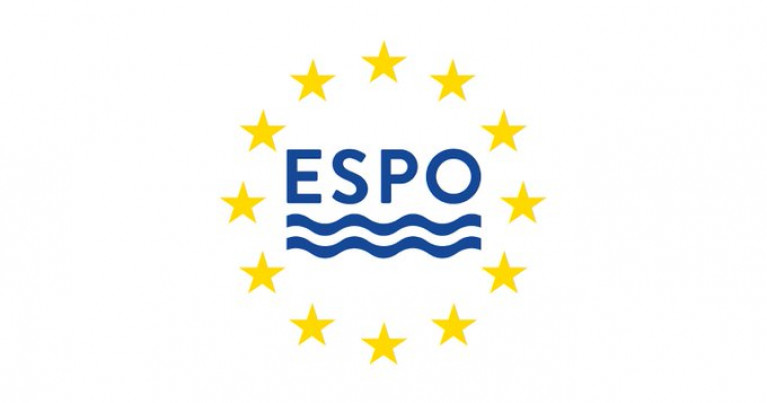Displaying items by tag: Coherent Legislation
ESPO asks for Ambitious & Coherent Legislation on Provision and Use of Clean Energy Infrastructure for Shipping
Europe’s ports welcome that the review of the current AFIR proposal is accompanied by provisions in the new FuelEU Maritime Proposal, which requires vessels to use shore-side electricity infrastructure at berth.
The alignment of requirements between what ports need to do and the obligations for shipping lines to use the infrastructure is one of the main points of European Sea Ports Organisation (ESPO)’s joint position on the maritime pillar of the proposal for an Alternative Fuel Infrastructure Regulation (AFIR) and on the proposal for a FuelEU Maritime Regulation.
Europe’s ports ask for a full alignment of Article 9 of the AFIR proposal with Articles 4 and 5, as well as with Annex III of the FuelEU Maritime proposal.
“For years we have been discussing the chicken and the egg problem as a barrier to making real progress in greening of shipping. Let’s now work together with all policy makers and stakeholders to move forward towards investing in technologies that are effectively being used and that lead to effectively reducing the emissions of shipping, both at berth and during navigation. Even if different working parties in the Council and key players in the European Parliament are working on each file, it is essential that these two pivotal Fit for 55 proposals are being discussed together all along the legislative process. We look forward to working with the Parliament and the Council to deliver a coherent package,” says Isabelle Ryckbost, ESPO’s Secretary General.
For Europe’s ports, shore side electricity (SSE) is an important instrument to reduce emissions of shipping at berth, but it has to be deployed where it makes most sense in terms of delivering cost-effective reductions of greenhouse gases at berth. Prioritisation is essential in that respect. For ESPO, it would be more effective to define the scope based on a minimum level of traffic volume per terminal (instead of per port) to prioritise busy terminals and avoid underused capacity being installed. The focus on certain segments of shipping should however not be seen as an exemption for the other segments of shipping from the requirement to lower emissions at berth.
ESPO regrets that the AFIR proposal only addresses the shore side electricity installation in the port, thereby overlooking the issues of grid connectivity, grid capacity and grid conversion. These should also be tackled in the proposals as they are essential to make installed SSE operational. Installing grid converters, connecting to and upgrading the grid can be required to ensure the supply of shore-side electrical power to certain vessels. Such installations and upgrades are often outside the remit of the port authority/port managing body.
In addition, ESPO calls for a consultation mechanism to aid in the application of the requirements of the AFIR and FuelEU Maritime. To allow ports to optimise their investments as much as possible and ensure that they function well, individual ports need to be able to plan ahead. Ports need to know if a shipping operator intends to use onshore power supply or rather one of the other alternative technologies foreseen in the Annex III of the proposal. Moreover, ports should know what power needs vessels will have when at berth, in order to plan for sufficient SSE capacity during a given call.
“We welcome the proposals to increase the use and availability of alternative fuels in the maritime sector. The setting of requirements for certain ship segments to use shore side electricity at berth is crucial to matching the available supply with demand. But within this legislative framework, it will be important for stakeholders to work together. Ports face huge investments and must be able to optimise these investments, where it makes most sense. Shipping operators can help by clearly indicating their intentions and needs to the port and/or the responsible investing body, thereby avoiding stranded assets in the port,” adds Isabelle Ryckbost.
Whilst ESPO recognises the transitional role of LNG, a top-down obligation to install LNG is no longer fit for purpose. ESPO finds that given its transitional role, the provision of LNG bunkering infrastructure in ports should in essence be demand driven, in particular as regards new investments.
To be fit for 55, there is a need to fund for 55% emission reductions. An ambitious SSE deployment plan in ports requires adequate funding, since every shore side electricity facility installed so far has been supported by 50% or more public financing. Next to the existing EU funding mechanisms such as the Connecting Europe Facility (CEF), ESPO calls for revenues from the maritime EU Emission Trading System (EU ETS) and the penalties levied under the FuelEU Maritime to be used to promote the distribution and use of renewable and low-carbon fuels and technologies in the maritime sector. On top of that, ESPO asks for an EU-wide permanent tax exemption for the electricity provided to ships at berth in the reviewed Energy Taxation Directive.
ESPO and its members look forward to further discussing these proposals with EU decision-makers.
A first exchange of view on the AFIR and FuelEU proposals in the European Parliament TRAN committee is scheduled on 1 December.
ESPO’s position on AFIR and FuelEU Maritime can be found here.






























































